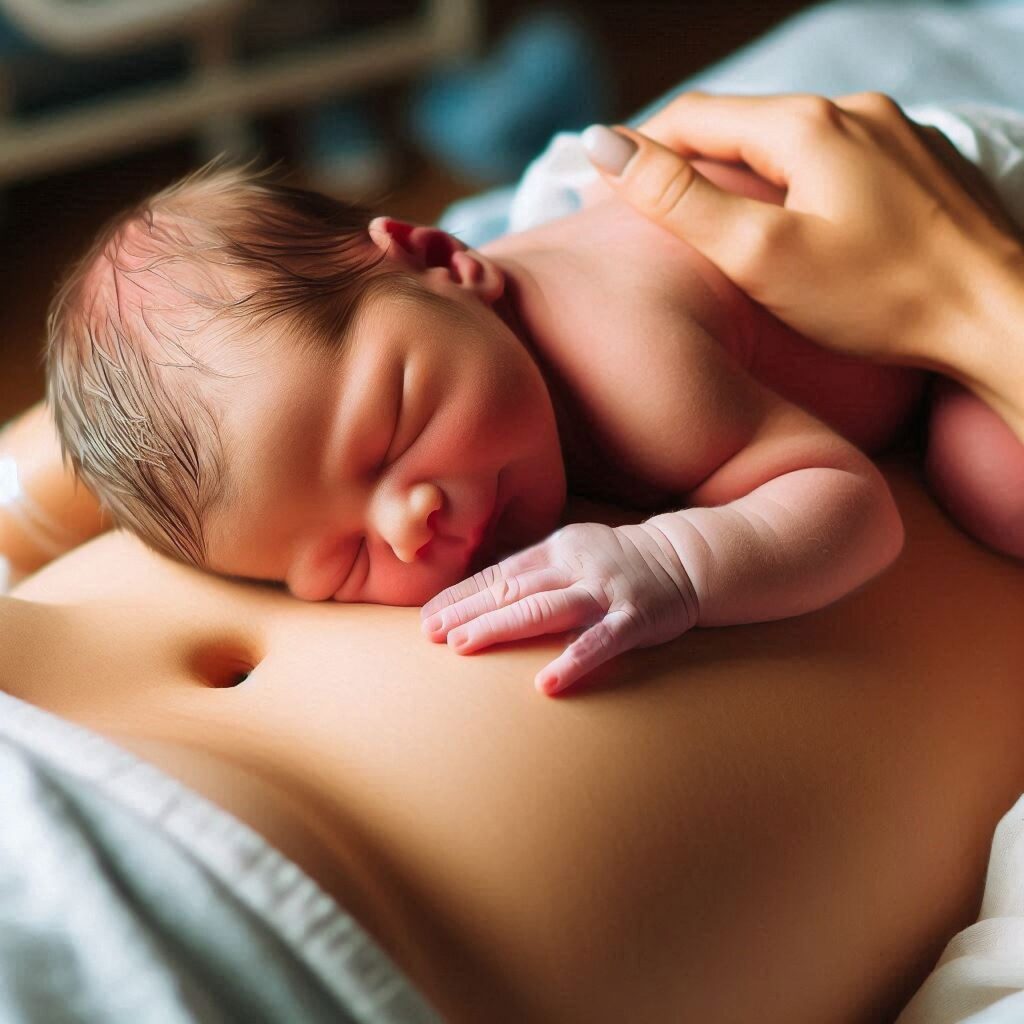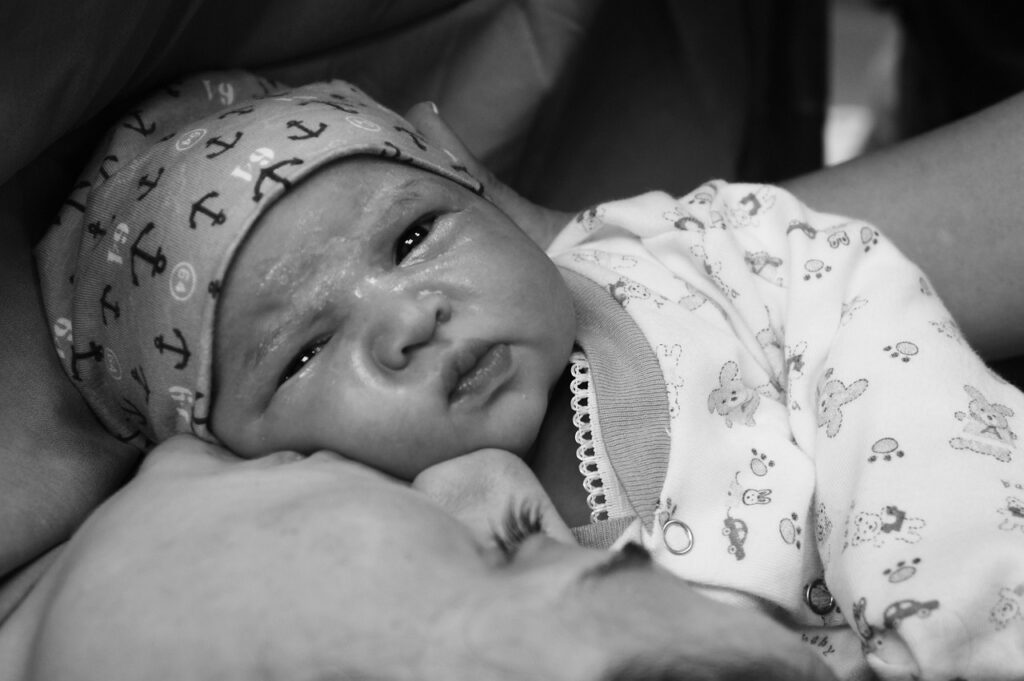How long does the postpartum period last?

“Something that took me years to come to terms with after the birth of my first child was that motherhood is not about getting back to your old self. It is about finding your new self, and making peace with her.“
After your baby finally arrives, you will likely become familiar with the term “postpartum”. There are many different uses for this word, and some you may be more familiar with than others.
If you delivered your baby in a hospital, you may have spent time in the postpartum unit of the hospital. Your doctor or friends may have talked to you about certain supplies to have on-hand for the postpartum period. And of course, postpartum depression is something talked about frequently in the birth and newborn world.
However, fully understanding the meaning of postpartum and what that looks like for you as a new mother is often confusing.
The National Institute of Health defines the length of the postpartum period in the following way:
“The postpartum period begins soon after the baby’s delivery usually lasts 6 to 8 weeks, and ends when the mother’s body has nearly returned to its pre-pregnant state”(NIH).
You may be thinking this sounds feasible. The postpartum phase will last for at most 2 months post birth, and then you will be back to your pre-pregnancy self! However, there are many considerations to keep in mind while navigating the length and complexity of postpartum.
What type of birth did you have?
The way your baby makes their entrance into the world will undoubtedly have an effect on your postpartum experience, and how long your body may take to heal.
- Did you have a cesarean or vaginal birth?
- Did you experience any birth complications, such as severe tearing or other birth injuries?
- Did you deliver a singleton or multiples?
- Was this your first birth, or second, third or beyond?
Some facets of birth are within our control, and others are not. It is important to keep in mind that the type of birth you experienced may affect your postpartum period, but know you are the best mother for your baby, even if things did not go the way you planned.
Was your birth a traumatic experience?
Birth trauma is unfortunately too common, and I believe one of the most important factors to address and consider during the postpartum period. Research proves that stress on the body causes delayed healing, and increased heal time will increase the length of your postpartum period.
Birth trauma can affect sleep, and the amount of time and consideration we put into providing nutrition to our bodies. Lack of sleep and inadequate nutrition can have detrimental effects on our body’s healing (Stress and Wound Healing), causing the postpartum period to stretch longer than we may anticipate.
Finding support through a counselor trained in postpartum mental health, mother’s groups in your area, and hiring a postpartum doula are all ways to begin working through the trauma that surrounds a birth experience.
Did you experience any health complications following the birth of your baby?
Although the proverbial clock of your postpartum duration may start ticking immediately following birth, health complications after the birth will understandably add length and complexity to this time.
Women experience a variety of postpartum health complications, from pelvic floor issues to thyroid dysfunction. Although we hope for a smooth and speedy recovery, understandably, any health complications that crop up post-birth will increase the amount of time you spend in your postpartum period.

Did you have help during and after your baby’s birth to facilitate your healing?
Some women feel like they have just been hit by a train post birth (hello, 4th degree tear!) and others feel on top of the world, fueled by post-birth hormones. However, regardless of how you feel immediately post-birth, recovery time for your body is essential.
Unfortunately, in America we are often faced with the harsh reality of limited or no maternity leave, and our partners often receive no paid time off to help us.
Perhaps we are lucky enough to have family or friends nearby to help, but oftentimes, that is not the case. This leaves us to navigate postpartum alone, taking on any and all duties necessary to care for our new babies, ourselves, and any other children we have.
Whether you were allowed time to rest or had to jump right back into things can have a lasting impact on how long your postpartum period may last.

The Fourth Trimester
As a postpartum doula, I often speak with my clients about the “fourth trimester”. Instead of seeing birth as the final stage of pregnancy, the fourth trimester takes into account the physical and mental changes that take place after the birth.
The fourth trimester is often considered to be the 4 months following birth, which is more than double what is typically considered the postpartum period.
Even so, 4 months is rarely enough time to accommodate the changes of new motherhood.
And this is exactly why when clients and friends ask me how long the postpartum period lasts, I find it impossible to assign it an exact length of time. Instead, I share support and encouragement to take as long as they need to reach a point where they feel they have left postpartum and entered the next stage of motherhood. I will be there for them in whatever capacity they need, and there is no need to rush or worry about meeting any postpartum recovery timelines.
Something that took me years to come to terms with after the birth of my first child was that motherhood is not about getting back to your old self. It is about finding your new self, and making peace with her.

